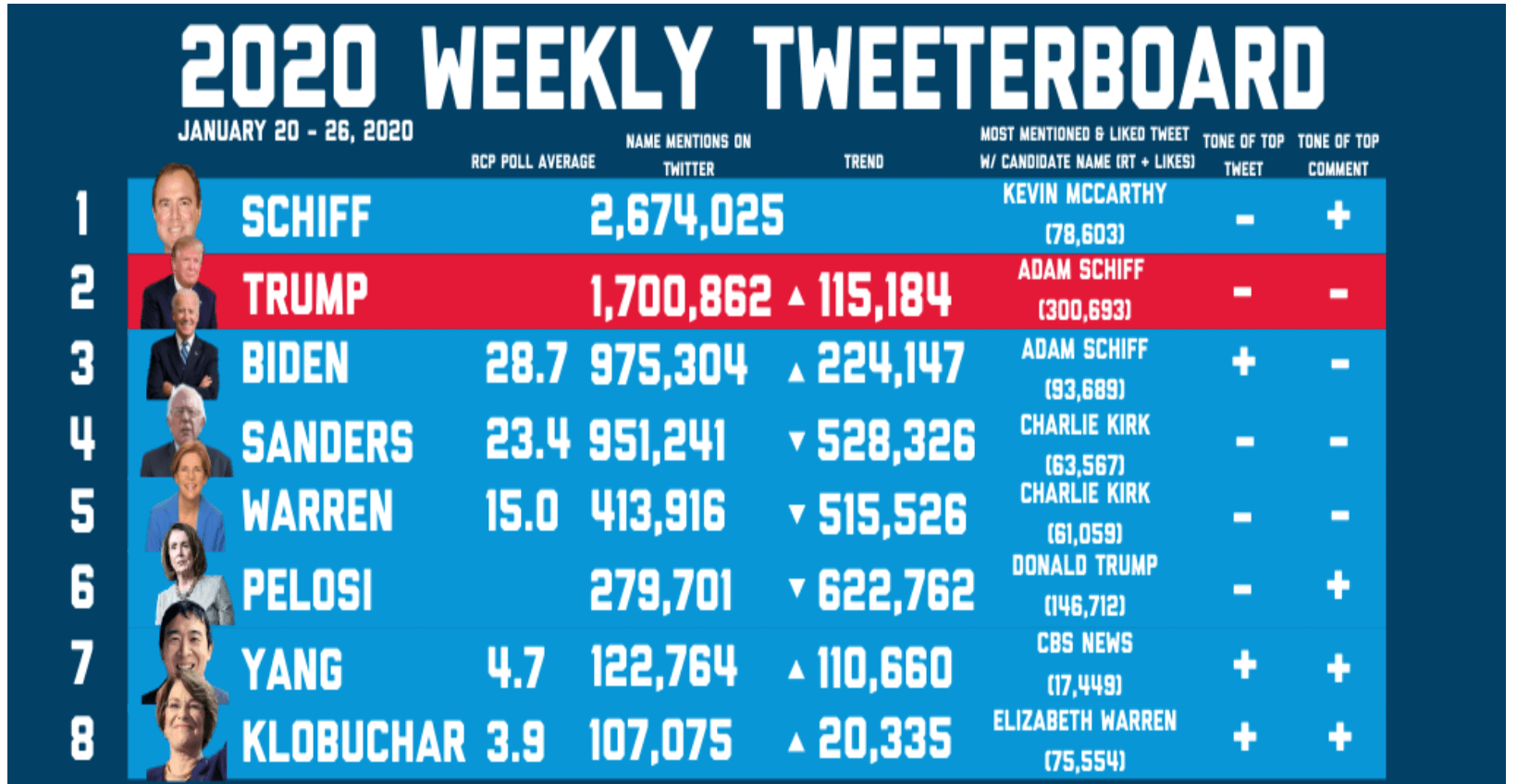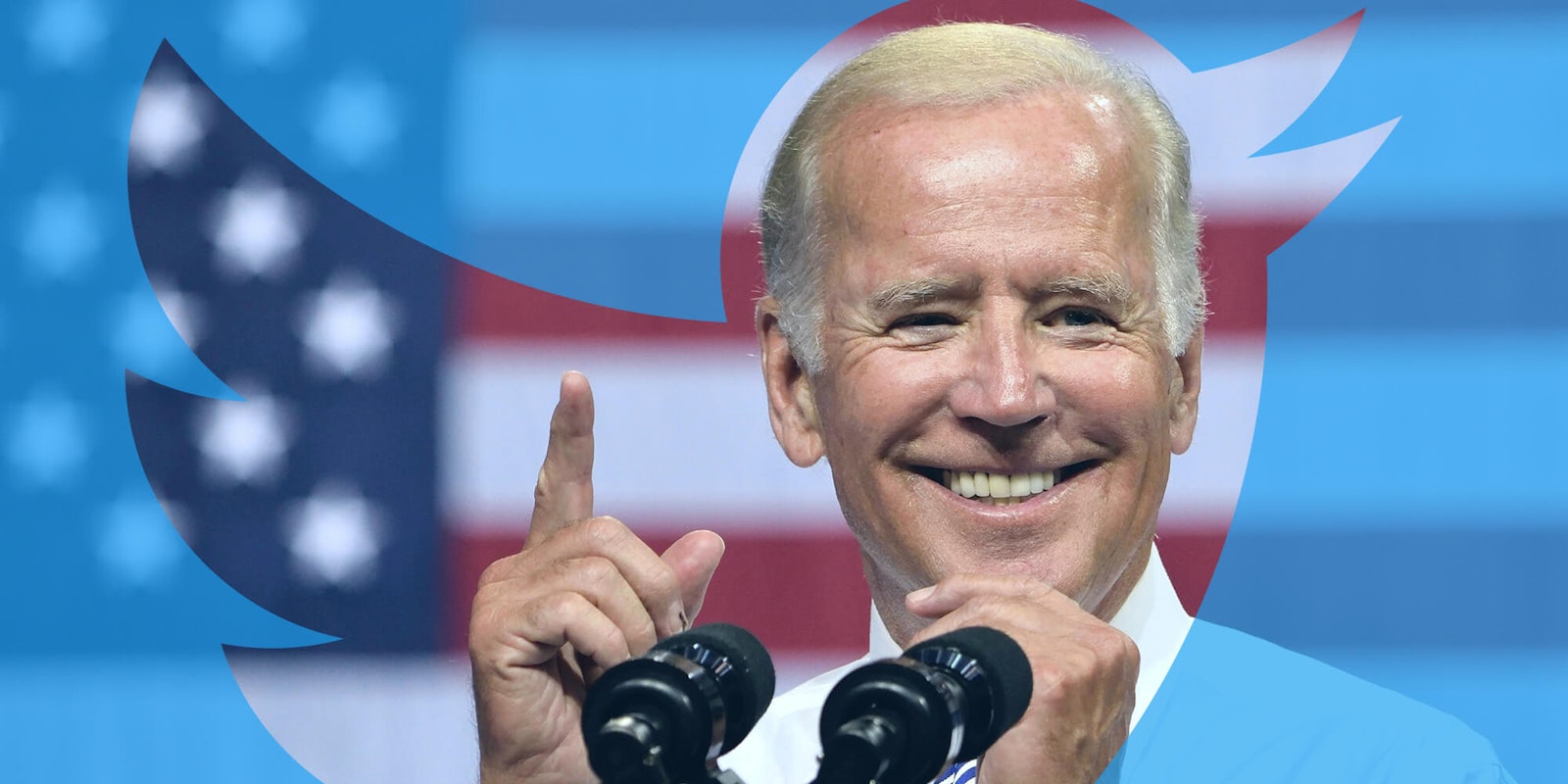It has been on everyone’s minds since the 2016 presidential election: Are those political arguments with friends and family on social media productive?
In the run-up to the 2020 primaries, Twitter and Facebook arguments seem to have swiftly returned to the same acrimonious 2016 levels, reflecting a fractured and massive field of Democratic candidates.
Many pundits have pointed to social media’s role in building up echo chambers of agreement around individual users, but what if a platform like Twitter really does play a role in who gets elected?
A team of researchers at George Washington University believes they may have created an election prediction model that actually works—because it’s powered by Twitter, rather than polling data. This week, they’ll put it to the test and see if it can actually predict the Iowa primary results. With concerns over the legitimacy of polling data roiling the last days before the first vote, the timing could not be more perfect.
Twitter is not the only factor at play: the prediction model, known as PEORIA Project, takes into account a candidate’s cash on hand, their total endorsements from other politicians, and their number of mentions on Twitter as sourced by GWU’s Tweeterboard.
With the help of an algorithm, this model then estimates a candidate’s vote share.
Right now, the team at George Washington University is seeing Joe-mentum.
Joe Biden on why his son Hunter — who had no experience in Ukraine or in the energy sector — got an $80,000-per-month board seat with Burisma as father Biden was running US policy in Ukraine:
— Aaron Maté (@aaronjmate) February 3, 2020
“Cause he’s a very bright guy.” pic.twitter.com/2jOFbZQsre
It projects that Joe Biden will win 24.1% of the vote in Iowa and Bernie Sanders will achieve 22.1%, with the other candidates trailing them.
While plenty has been written about Sanders’ support online—and Biden’s plea for supporters to match their ferocity—he is surprisingly leading in the online field. Biden was mentioned in Tweets 975,304 times the week of Jan. 20-26, while Sanders was mentioned 951,241 times.

According to FiveThirtyEight’s aggregate polling data as of Feb. 1, Sanders is projected to win 22% of the vote, with Biden receiving 21.5%. If the predictive model manages to outperform polling data, it could have ramifications for the rest of the country’s primaries and even the general election.
But before you make any drastic voting decisions based on that information, know that the model isn’t foolproof.
For one, each candidate’s projected share of the vote actually has a range and the final number is an average. In the case of the Iowa caucus, the model predicts Biden will get 16.8% to 31.3% of the vote, while Sanders will get 16.9% to 27.3% of the vote. Warren and Buttigieg, whose averages fall short of Sanders’ and Biden’s, have ranges of 11.6% to 21.1% and 8.6% to 18.5%, respectively. With a 95% confidence interval, there is still room for some error.
This model may not seem too different from one that uses polling data (after all, the results are fairly similar), but it’s the use of Twitter that’s novel.
“I think people already understand that social media is taking over conversations,” says researcher Meagan O’Neill. “It’s not perfect but it’s a great way to see what’s being talked about.”
Joe Biden kisses granddaughter on lips during Iowa rally https://t.co/pf9Lpuoo3U pic.twitter.com/Fo4DjZfzHk
— New York Post (@nypost) February 3, 2020
To her, tweets are equivalent to buzz—and the more people tweet about a candidate, the more buzz they get in the public eye. The team chose not to differentiate between positive and negative tweets mostly due to machine learning limitations, but according to O’Neill, the sentiment of a tweet does not even matter, because it means “people are still talking.” The researchers chose to include Twitter over other social media sites because most tweets are public, which makes it much easier to get a large data set.
However, with Biden, the vast number of tweets about him are inextricably tied to Republican defense of the impeachment of President Donald Trump. Many have been dragging the actions of his son Hunter, calling his behavior corrupt.
Whether the value of buzz outweighs the negative stigma floating around his son’s actions is unknown.
Joe Biden insists corrupt Burisma hired Hunter Biden because he’s “bright” despite his complete lack of experiencehttps://t.co/XyzN0bB5qb pic.twitter.com/Tjapq0KHnR
— RNC Research (@RNCResearch) February 3, 2020
O’Neill acknowledges that Twitter is not representative of America as a population—its users are 66% male, only 22% of total users are adults in the United States, and 80% of all people on Twitter are affluent millennials. But O’Neill argues that it’s still representative of the conversation going on in the American consciousness.
And good or bad, there’s no doubt a lot of the discourse has centered on Joe Biden.
We’ll know tonight if that’s was enough to take him over the top in Iowa.
READ MORE:
- John Kerry says idea that he is running in 2020 is ‘f*cking false’
- Joe Rogan addresses Bernie Sanders endorsement drama
- Are these suspicious Pete Buttigieg stan accounts legit?


